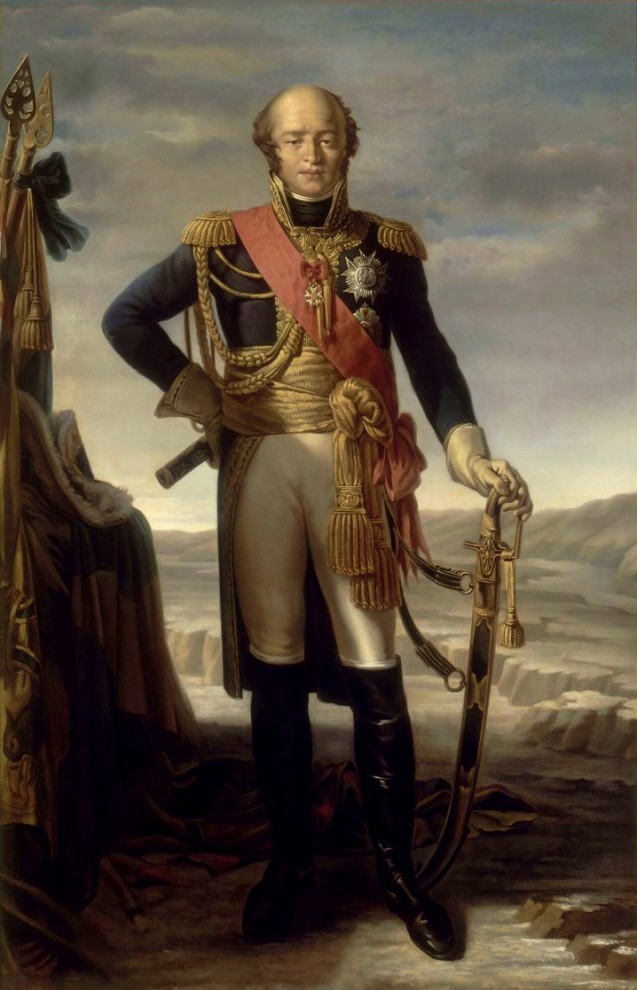Arguably the finest corps commander among Napoleon’s marshals, Davout was born in Burgundy to a minor noble family, and followed his father to the royal cavalry in 1788. Though a supporter of the French Revolution, he was dismissed from the regular army in 1791, but immediatelty elected colonel in command of a volunteer battalion. He fought at Neerwinden in March 1793, and first came to public notice just afterwards, when he refused orders from Dumouriez to march on Paris. Though rewarded with promotion to brigadier-general in July, he was retired along with other former nobles in August.
Reinstated from October 1794, Davout commanded cavalry on the Rhine front, fighting around Mannheim in 1795, at Kehl and Haslach in 1796, and at Diersheim in spring 1797. His capture of correspondance between Pichegru and royalist émigrés helped trigger the Fructidor coup later that year, and his close relations with immediate superior Desaix brought an introduction to Napoleon, culmunating in a staff appointment with the Middle East expedition in 1798. Still under Desaix, he fought at the Pyramids and Aboukir, but was captured by the British on his way home in 1800.
Promoted divisional general on his return to service in July 1800, he fought in the latter stages of the Italian campaign against the Second Coalition, and was one of the original Marshalate in 1804. He led III Corps with great success against the Third Coalition in 1805, playing an important role at Austerlitz and demonstrating organizational abilities which made his command the most efficient in the Grande Armée. These qualities were fully tested in October 1806, when his outnumbered detachment won a crucial victory at Auerstädt to seal Russia’s rapid defeat.
After fighting through the war against the Fourth Coalition, and leading Napoleon’s right wing at Eylau, Davout was governor-general of Warsaw from summer 1807, and became Duke of Auerstädt next year. He returned to the head of III Corps for the campaigns of 1809, performing vital service at both Eckmühl and Wagram, after which he held a number of senior commands (as Prince of Eckmühl) in Germany.
Davout led I Corps through the 1812 Russian campaign, performing with his usual vigour during the opening advances, and replacing Jérôme Bonaparte in command of the Grande Armée’s southern wing in July. He won a minor victory at Mohilev and fought at Smolensk, but his coprs was replaced as rearguard to the retreat from Moscow after a crushing defeat at Fiodoroivskoy in November. In command at Desden during the early stages of the campaign for Germany, he was transferred to hold Hamburg from May 1813, eventually surrendering a year later and suffering royal banishment from Paris.
He rejoined Napoleon during the Hundred Days of 1815 but was not given a field command. Never particularly popular, but untainted by sycophancy or personal ambition, he was instead war minister and military governor of Paris. He held the capital until 3 July, when he evacuated garrison troops to western France by agreement with the allies. He turned his forces over royal control on 14 July, and remained under house arrest until his partial reinstatement in 1817. His titles were fully restored in 1819.
Source: Dictionary of the Napoleonic Wars, ed. S. Pope, London: Collins, 1999


